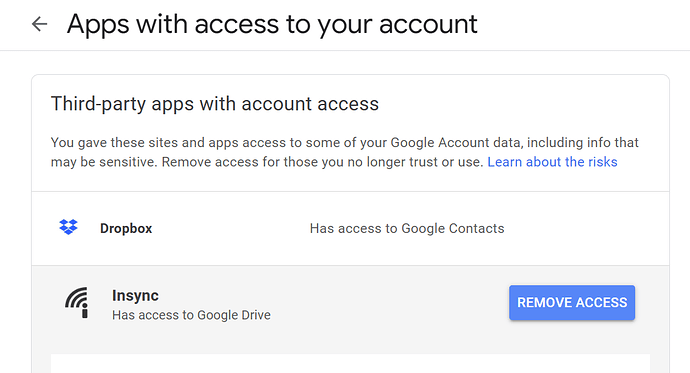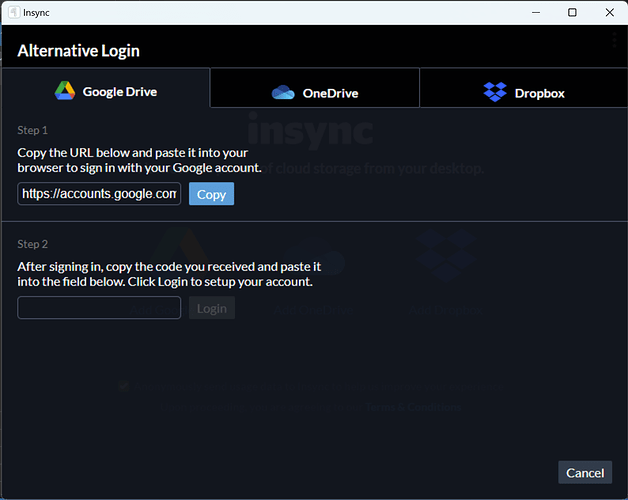I will add that after this error, even though you press “1” to re-login, syncing seems to just stop. I have a backlog of files on my linux systems and though status says “syncing”, nothing is moving up to the cloud.
me@myserver:/InsyncRoot/HomeSeer$ insync-headless status
Accounts:
me@me.org (Google Drive)
Sync status: ERROR
(See insync-headless error list or insync-headless conflict list for details.)
me@myserver:/InsyncRoot/myserver$ insync-headless error list
1 - Your authentication token has expired. Please try logging in again.
Choose an error to resolve (1 - 1, 0 to quit): 1
1 - Login
Choose an option (1 - 1, 0 to cancel): 1
me@myserver:/InsyncRoot/myserver$ insync-headless status
Accounts:
me@me.org (Google Drive)
Sync status: SYNCING
…but nothing happens. I have tried stopping the service and restarting it, but still once this happens the only way I have gotten it to start syncing again is to uninstall, delete local files and start over.



 Thank you!
Thank you!